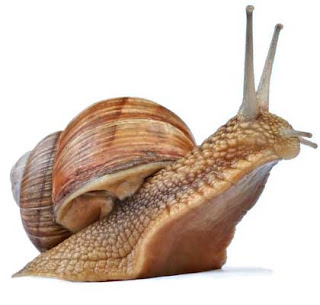Xi Jinping - President of China
Xi Jinping is the top leader in the Communist Party of China and the
President of the People’s Republic of China.
Synopsis
Xi Jinping was born June 15,
1953. His father was well placed in the Chinese Communist Party (CCP), but fell
out of favor during the Cultural Revolution, and Xi had to start from the
bottom. He worked up the ranks, touching all the right bases within the
bureaucracy to become a major player in the Chinese Politburo. By 2013, Xi was
elected General Secretary of the Communist Party, Chair of the Military
Commission and President of the People’s Republic of China. He has since
accomplished his goal of cracking down on government corruption, although he
has also been criticized for human rights violations and disruptive economic
regulations.
Xi Jinping was born June 15, 1953, the son of a well-placed Chinese Communist Party leader, Xi Zhongxun, a former comrade of Communist China’s founder Mao Zedong. Considered a “princeling someone destined to rise within the government due to family connections—Xi Jinping’s destiny was altered when his father was purged from power in 1962.
In 1966, Mao launched the
Cultural Revolution, a sociopolitical movement intended to preserve “true”
Communist ideology and purge remnants of capitalist society. All formal
education was halted, and Xi Jinping, at that time in high school, was sent
down to work in a remote farming village for seven years, doing manual chores
and subsisting on rice gruel. It was there that Xi grew up both physically and
mentally. Considered a weakling when he first arrived, he grew strong and
compassionate and developed good relations working alongside the villagers.
Though the Cultural Revolution was a failure, Xi emerged with a sense of
idealism and pragmatism.
Achievements and Controversies
Fulfilling one of his early promises, Xi almost immediately
embarked on a campaign to deal with government corruption. He arrested some of
the country's most powerful figures, including former security chief Zhou
Yongkang, and by the end of 2014 the CCP had disciplined more than 100,000
officials.
Xi also set about stimulating a slowing economy. In 2014, China
introduced the "One Belt, One Road" initiative to bolster trade
routes and launched the ambitious Asian Infrastructure Investment Bank.
Domestically, his party expanded the power of private banks and allowed
international investors to trade shares directly on the Shanghai stock market.
Xi has
also changed some of the laws enacted by predecessors, formally ending China's
one-child policy in 2015. His elimination of the "reeducation through
labor" system, which punished individuals charged with petty crimes, was
viewed favorably.
However,
the Chinese leader has drawn scrutiny for his methods. Critics have noted that
his crackdown on government corruption mainly targeted political opponents, and
the CCP has come under fire by human rights groups for jailing journalists,
lawyers and other private citizens. Under Xi's reach, censors have sought to
eliminate Western influence in school curriculums and limited the public's
internet access.
Xi has
also overseen economic regulations that have reverberated beyond his country's
borders. The government stepped in to prop up a sagging housing market in 2014,
and suddenly devalued the yuan in the summer of 2015. Despite promising during
a trip to the United States in September that China would never manipulate
currency to increase exports, Xi has been accused of that very approach.
Global Standing
As part of his goal to establish China as a 21st century global
superpower, Xi has pushed for military reform to upgrade naval and air forces.
Already chairman of the Central Military Commission, in 2016 he added the title
of commander in chief of its joint battle command center.
In recent years, Xi has asserted China's naval capacities
through the construction of artificial islands within disputed territories of
the South China Sea. Despite his claims to the contrary, satellite photographs
indicated that the islands were being used to house military developments. In
July 2016, an international tribunal in The Hague ruled that China had
illegally claimed those territories, although China refused to accept the
authority of that ruling.
While often at odds with the U.S. over trade issues, Xi has
publicly acknowledged the need for China to cooperate with its Western
counterpart on the issue of climate change. In September 2016, Xi and U.S.
President Barack Obama announced they were formally adopting the international
climate-change agreement reached in Paris the previous December to reduce
emissions from the world’s two largest economies.







Comments
Post a Comment